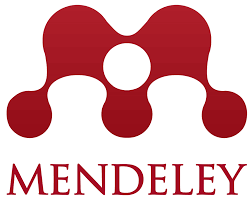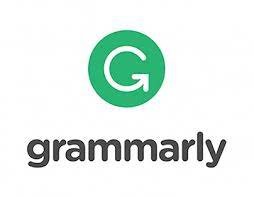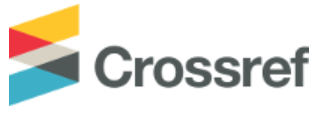- Focus and Scope
- Section Policies
- Peer Review Process
- Publication Frequency
- Open Access Policy
- Publication Ethics
- Author Guidelines
- Article Processing Charges
- Abstracting and Indexing
Focus and Scope
We publish origin article research, review articles, and case studies focused on mathematics and mathematics education. The scope of Indonesian Journal of Mathematics Education is as follows:
- Mathematics Education
- Mathematics (analysis, geometry, algebra, statistics, applied mathematics)
Section Policies
Articles
Peer Review Process
Publication of articles in Indonesian Journal of Mathematics Education is dependent solely on scientific validity and coherence as judged by our editors and/or peer reviewers, who will also assess whether the writing is comprehensible and whether the work represents a useful contribution to the field. IJOME acknowledged the effort and suggestions made by its reviewers.
Initial evaluation of manuscripts
The Editor will first evaluate all manuscripts submitted. Although rare, yet it is entirely feasible for an exceptional manuscript to be accepted at this stage. Those rejected at this stage are insufficiently original, have serious scientific flaws, or are outside the aims and scope of the IJOME. Those that meet the minimum criteria are passed on to experts for review.
Type of peer review
Submitted manuscripts will generally be reviewed by two to three experts who will be asked to evaluate whether the manuscript is scientifically sound and coherent, whether it duplicates the already published works, and whether or not the manuscript is sufficiently clear for publication.
Review reports
Reviewers are asked to evaluate whether the manuscript:
- Is original by stating the objectives and gap clearly
- Is methodologically sound
- Follows appropriate ethical guidelines
- Has results/findings which are clearly presented and support the conclusions
- Correctly references previous relevant work
- Reviewers are not expected to correct or copyedit manuscripts. Language correction is not part of the peer review process.
Decision
Reviewers advise the editor, who is responsible for the final decision to accept or reject the article. The Editors will reach a decision based on these reports and, where necessary, they will consult with members of the Editorial Board. Editor’s decision is final.
Publication Frequency
Indonesian Journal of Mathematics Education is a journal published twice in a year on April and October.
Open Access Policy
This journal provides immediate open access to its content on the principle that making research freely available to the public supports a greater global exchange of knowledge.
Publication Ethics
Indonesian Journal of Mathematics Education is a peer-reviewed journal. This statement clarifies ethical behaviour of all parties involved in the act of publishing an article in this journal, including the author, the chief editor, the Editorial Board, the peer-reviewer and the publisher (Mathematics Education Study Program, Faculty of Education and Teachers Training, Universitas Tidar). This statement is based on COPE’s Best Practice Guidelines for Journal Editors.
Ethical Guideline for Journal Publication
The publication of a peer-reviewed article in of Indonesian Journal of Mathematics Education is an essential building block in the development of a coherent and respected network of knowledge. It is a direct reflection of the quality of the work of the authors and the institutions that support them. Peer-reviewed articles support and embody the scientific method. It is therefore important to agree upon standards of expected ethical behavior for all parties involved in the act of publishing: the author, the journal editor, the peer reviewer, the publisher, and the society.
Publisher and Editor
Mathematics Education Study Program, Faculty of Education and Teachers Training, Universitas Tidar as the publisher of Indonesia Journal of Mathematics Education takes its duties of guardianship over all stages of publishing extremely seriously and we recognize our ethical and other responsibilities. We are committed to ensuring that advertising, reprint or other commercial revenue has no impact or influence on editorial decisions. In addition, Department of Mathematics Education, Faculty of Education and Teachers Training, Universitas Tidar and Editorial Board will assist in communications with other journals and/or publishers where this is useful and necessary.
Publication decisions
The editor of the Indonesian Journal of Mathematics Education is responsible for deciding which of the articles submitted to the journal should be published. The validation of the work in question and its importance to researchers and readers must always drive such decisions. The editors may be guided by the policies of the journal's editorial board and constrained by such legal requirements as shall then be in force regarding libel, copyright infringement and plagiarism. The editors may confer with other editors or reviewers in making this decision.
Fair play
An editor at any time evaluates manuscripts for their intellectual content without regard to race, gender, sexual orientation, religious belief, ethnic origin, citizenship, or political philosophy of the authors.
Confidentiality
The editor and any editorial staff must not disclose any information about a submitted manuscript to anyone other than the corresponding author, reviewers, potential reviewers, other editorial advisers, and the publisher, as appropriate.
Disclosure and conflicts of interest
Unpublished materials disclosed in a submitted manuscript must not be used in an editor's own research without the express written consent of the author.
Reviewers
Peer review assists the editor in making editorial decisions and through the editorial communications with the author may also assist the author in improving the paper.
Promptness
Any selected referee who feels unqualified to review the research reported in a manuscript or knows that its prompt review will be impossible should notify the editor and excuse himself from the review process.
Confidentiality
Any manuscripts received for review must be treated as confidential documents. They must not be shown to or discussed with others except as authorized by the editor.
Standards of Objectivity
Reviews should be conducted objectively. Personal criticism of the author is inappropriate. Referees should express their views clearly with supporting arguments.
Acknowledgement of Sources
Reviewers should identify relevant published work that has not been cited by the authors. Any statement that an observation, derivation, or argument had been previously reported should be accompanied by the relevant citation. A reviewer should also call to the editor's attention any substantial similarity or overlap between the manuscript under consideration and any other published paper of which they have personal knowledge.
Authors
Privileged information or ideas obtained through peer review must be kept confidential and not used for personal advantage. Reviewers should not consider manuscripts in which they have conflicts of interest resulting from competitive, collaborative, or other relationships or connections with any of the authors, companies, or institutions connected to the papers.
Reporting standards
Authors of reports of original research should present an accurate account of the work performed as well as an objective discussion of its significance. Underlying data should be represented accurately in the paper. A paper should contain sufficient detail and references to permit others to replicate the work. Fraudulent or knowingly inaccurate statements constitute unethical behaviour and are unacceptable.
Data Access and Retention
Authors are asked to provide the raw data in connection with a paper for editorial review, and should be prepared to provide public access to such data (consistent with the ALPSP-STM Statement on Data and Databases), if practicable, and should in any event be prepared to retain such data for a reasonable time after publication.
Originality and Plagiarism
The authors should ensure that they have written entirely original works, and if the authors have used the work and/or words of others that this has been appropriately cited or quoted.
Multiple, Redundant or Concurrent Publication
An author should not in general publish manuscripts describing essentially the same research in more than one journal or primary publication. Submitting the same manuscript to more than one journal concurrently constitutes unethical publishing behaviour and is unacceptable.
Acknowledgement of Sources
Proper acknowledgment of the work of others must always be given. Authors should cite publications that have been influential in determining the nature of the reported work.
Authorship of the Paper
Authorship should be limited to those who have made a significant contribution to the conception, design, execution, or interpretation of the reported study. All those who have made significant contributions should be listed as co-authors. Where there are others who have participated in certain substantive aspects of the research project, they should be acknowledged or listed as contributors. The corresponding author should ensure that all appropriate co-authors and no inappropriate co-authors are included on the paper, and that all co-authors have seen and approved the final version of the paper and have agreed to its submission for publication.
Hazards and Human or Animal Subjects
If the work involves chemicals, procedures or equipment that have any unusual hazards inherent in their use, the author must clearly identify these in the manuscript.
Disclosure and Conflicts of Interest
All authors should disclose in their manuscript any financial or other substantive conflict of interest that might be construed to influence the results or interpretation of their manuscript. All sources of financial support for the project should be disclosed.
Fundamental errors in published works
When an author discovers a significant error or inaccuracy in his/her own published work, it is the author’s obligation to promptly notify the journal editor or publisher and cooperate with the editor to retract or correct the paper.
Author Guidelines
- IJOME accepts the articles which have not been published yet in other media.
- The length of the manuscript is 5-15 pages (see the template), written in English language.
- Manuscript comprises five main headings : Introduction; Method; Result and Discussion; Conclusions; References.
- Author’s names are written below the title, followed by author’s affiliation (name of the affiliation, address, post code, and country) and e-mail address.
- The abstract is written in English language, as a representation of the manuscript. The abstract should not exceed 250 words, written narratively comprising aim/objective, method, and findings of the research/article, in one paragraph.
- Keywords: words or phrases which are important, specific, or representative to the article.
- The manuscript should be written in following TEMPLATE.
- The manuscript must be in Microsoft Word (.doc/ .docx/ .rtf) and sent to the journal system via online submission by creating account in this Open Journal System (OJS).
- All the manuscript will be reviewed and if necessary, the authors will be asked to revise based upon the editor’s work. The editor has their rights to make simple correction relating to the words.
- All Author(s)’s names and identity(es) must be completely embedded in the form filled in by the corresponding author : email; affiliation; and each author’s short biography (in column of ‘Bio Statement’).
- All correspondences, information, and decisions for the submitted manuscript are conducted through email written in the manuscript and/or the emails used for the submission. The status of the manuscript can be checked in the OJS by logging into the journal.
- If you have submission queries, please contact ijome@untidar.ac.id
Article Processing Charges
Every article submitted to Indonesian Journal of Mathematics Education will not have any 'Article Processing Charges'. This includes submitting, peer-reviewing, editing, publishing, maintaining and archiving, and allows immediate access to the full text versions of the articles.
Abstracting and Indexing
Indonesian Journal of Mathematics Education is indexed and abstracted in:
2. Garuda
3. Crossref
4. Dimensions










